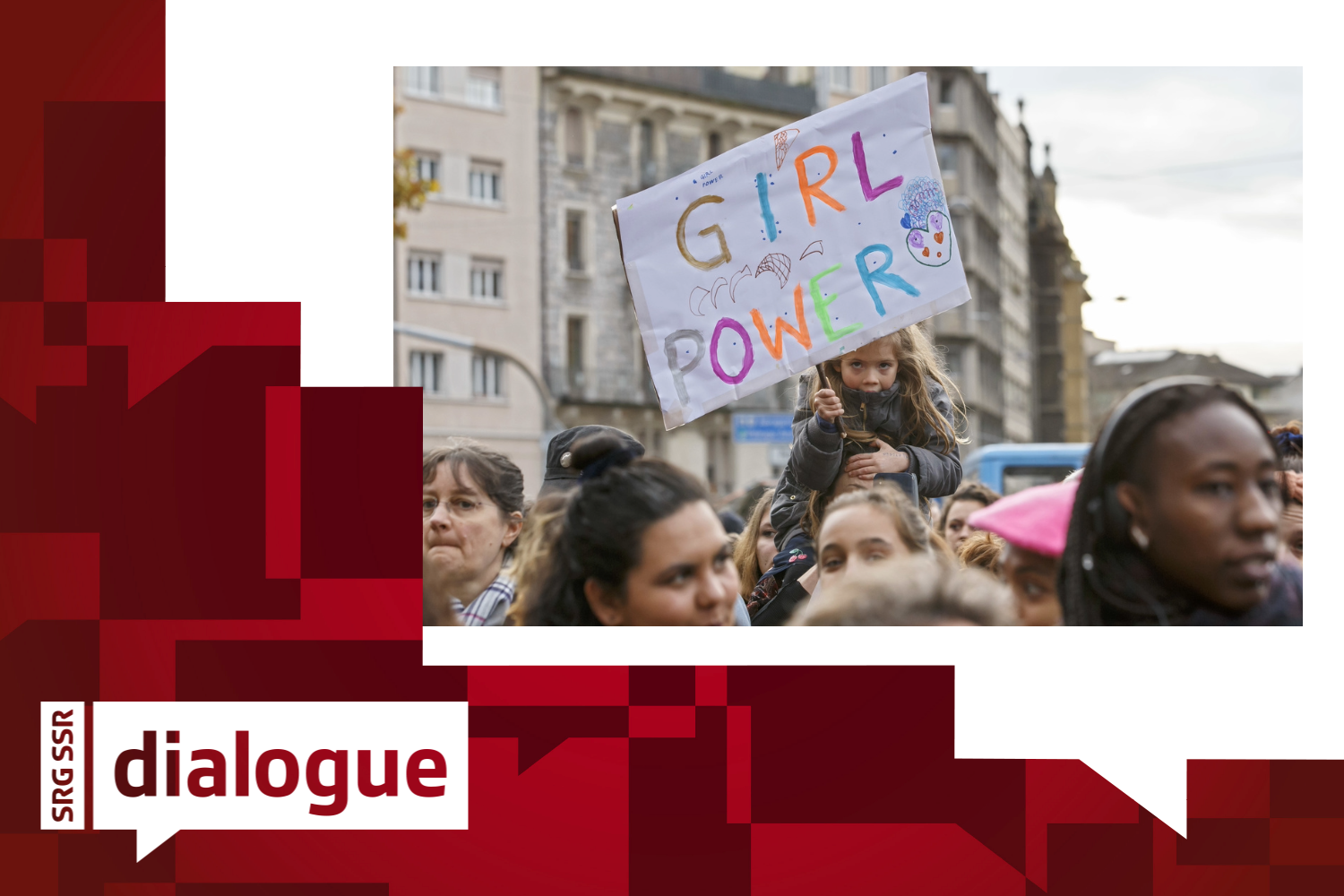
Has Switzerland made progress in addressing violence against women?
Keystone/Salvatore Di Nolf
In Switzerland, around 25 people die every year because of domestic violence – and 75% of victims are women. Authorities and civil society are looking for ways to take action. Are such initiatives having an impact? And is the situation changing fast enough? Join the discussion with ‘dialogue’.
Worldwide, 140 feminicides are committed every day, or one woman killed every ten minutes, according to a United Nations report published earlier this week. Even more disturbing is that the most dangerous place for women and girls is within their homes, as the perpetrator is usually someone close to her or her family. In 60% of the cases of femicide in 2023, the women were killed by their partner or a family member.
Switzerland is no exception. On the same day as the UN report was released, Swiss Interior Minister Elisabeth Baume-Schneider presented an interim report that analyses the measures of the National Action Plan for the Implementation of the Istanbul Convention 2022-2026.
“Women are not safe in our country,” Baume-Schneider said. Over the past 15 years, the number of women killed by someone close to them has stagnated in Switzerland, ranging from 14 to 24 a year.
The federal government, cantons and municipalities have identified three areas that require particular action: combating the causes of violence against women, a further training offensive, e.g. for healthcare professionals and judicial authorities, and greater awareness on the topic of protection against sexual violence.
What is your opinion? Has Switzerland made progress in addressing violence against women? Join the multilingual discussion on our debate platform “dialogue“.
Currently, there are a number of initiatives across Switzerland dedicated to the fight against gender-based violence.
Workshops against domestic violence
According to a survey conducted in 2018, almost 60% of teenagers between 15 and 18 years old in canton Neuchâtel have experienced violence in their relationship; one in two young women has endured sexual violence. The canton has reacted to these figures by organising workshops on the topic of domestic violence for pupils to help them identify a healthy relationship, but also warning signs. “Maybe I’m going to pay more attention to really knowing whether I want to have sex, really saying no or yes,” a workshop participant told Swiss public television, RTS.
Watch the full report on RTS:
Volunteers support migrant women
Migrant women who become victims of domestic violence are less likely to use available support services, according to the Surgir Foundation, a Lausanne-based organisation that advocates for women’s rights.
“This is due to various factors: language barriers, lack of social connections, lack of knowledge about laws and structures in Switzerland, and the fear of losing their residence permit,” says project manager Victoria Molina. To support women in need, the foundation has established a network of trained volunteers.
Read the full article on SWI swissinfo.ch:
More

More
Volunteer network supports migrant women affected by violence
Helping victims gain autonomy
Named after Athena, the Greek goddess of wisdom and war, a Ticino-based initiative aims to help victims of domestic violence “not to feel victimised their whole lives; to see themselves as a person and not as an object of a criminal process or a toxic relationship, without voice or autonomy”, Italian-speaking Swiss public television, RSI, reports. Athena is creating a network with existing services in Ticino. “We believe that, working together, we can do more and better, without creating new structures,” says Luisella De Martini, one of the project coordinators.
Watch the report on RSI:
‘Female Revenge’
Popular culture plays an important part in gender roles. Research showsExternal link that sexist, misogynistic and patriarchal beliefs cause men to be violent towards women. These are theories that are reproduced and passed on in narratives from generation to generation, also in books, movies and TV series.
However, there is a growing number of books, songs or films that create new narratives in response to sexualised violence and femicide. The genre “female revenge” not only defies the taboo of female violence, but it also demonstrates that the need for revenge is hardly intended for women in our society.
More stories about self-determined female avengers could help to strengthen the self-confidence of affected women, Eva Reisinger, author of the book Männer töten (Killing Men) told the Swiss public broadcaster SRF.
Listen to the broadcast on SRF:




